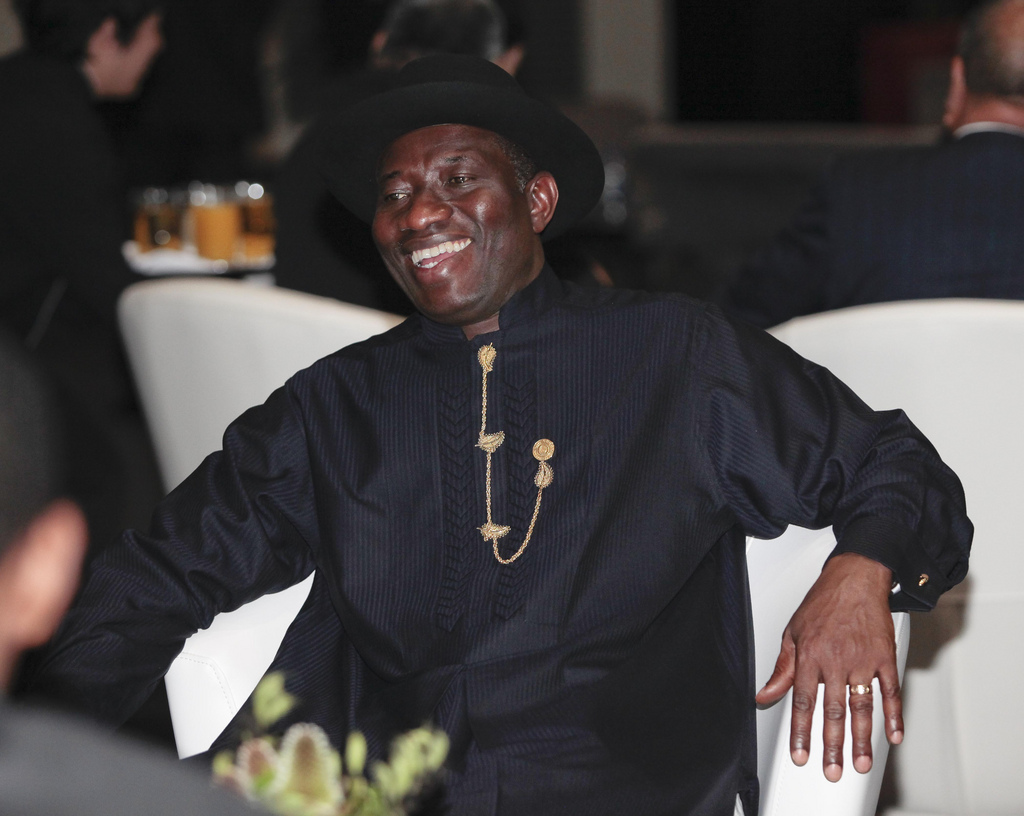The prerogative of a lame duck President
Why Goodluck Jonathan's presidential pardons are a bad idea.

Goodluck Jonathan, 2013. Image: Commonwealth Secretariat.
Last Tuesday, President Jonathan pardoned 7 Nigerians. While four of those pardons, Diya, Yar’Adua, Adisa and Fadipe have raised semantic issues as they had been granted ‘clemency’ under the regime of General Abdusalam Abubakar in 1999. The remaining three–former Bayelsa governor, Diepriye Alameisiyagha (among others, he dressed up as a woman and skipped bail in Britain on charges of laundering £1.8m.), former Bank of the North Managing Director, Bello Magaji, and ex-Major Bello Magaji–have been controversial.
Of course, most commentators, domestic and foreign, have spent a lot of time talking about the Alameisiyagha pardon, with all sorts of threats made, and calls for the President to withdraw the pardon. But something must be brought to the fore here: we all have friends, and to be honest, if I became President tomorrow and one of my really close friends did something silly, I would most likely chose to abuse my Presidential powers to grant them pardons.
However, I would chose my timing better. Such an abuse of power, is usually the prerogative of a lame duck President just before he leaves office. A final double middle-finger to a once loving electorate. Let’s make no mistakes, each and every one of you reading this would more than likely do the same, so let’s cut the man some slack.
More importantly to me, is the fact that all the noise makers now, did not do much to prevent the deed from being done, and that is the crux of the matter. The agenda for the National Council of State was public knowledge before the meeting, and I personally called not a few people to help make calls and work their networks so the travesty would be averted. Not much was done. Now we are making a whole lot of noise like it would get the man to change his mind? I don’t think so.
Truth be told, the President’s spokesmen have consistently quoted the Constitution and emphasized that his actions were legal. Which is an irony considering that the same Constitution also requires elected officials to declare their assets before assumption of office. Something the President said on national TV last year that he “doesn’t give a damn” about. In essence, the pardons display the selective compliance with the law by the holder of the highest office in the land and sets a very bad example. But like I said earlier, I’m not really bothered about Alameisiyagha and Bulama, for the simple reason that deep down, I know that a few weeks down the line, something else will come up, and we will all forget about Alameisiyagha. Sorry, I lie. Yesterday, the President told us that he will soon increase petrol prices again, so something has come up, and Alameisiyagha will soon be taking a back seat.
However, regarding ex-Major Magaji, ALL OF YOU READING THIS, would be as guilty as the President in this scandal if you let it die. Forgive my rather poor research skills, but I need to ask a question: In what country, ever, has a pedophile rapist been granted a state pardon? The details of ex-Major Magaji’s conviction make for gory reading–and rather than getting him on a sex offenders’ register as is done in every civilized environment, we are letting him loose again on our children. This particular pardon is in many ways, far more reprehensible, even than those granted to Bulama and Alameisiyagha. No sane parent could countenance a pardon for a man who lured unsuspecting children to his home, plied them with alcohol, and then sodomized them in a brutal destruction of their innocence. I wonder if the President were the parent of any of ex-Major Magaji’s victims, whether he would applaud this pardon. Our children are our future, and it is our duty to make it known without equivocation that they are our most precious possessions and anyone who dares to trample on them, must/should be dealt with to the fullest possible extent of the law.
By pardoning Ex-Major Magaji, what message is our President sending to our children now and in the future? That we don’t give a damn?



















